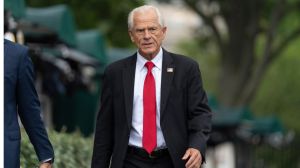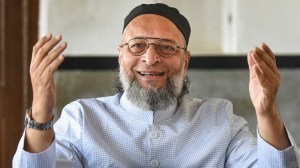Same as the old boss
There is a lot of justifiable speculation in India about relations with Pakistan after Musharraf8217;s departure.

There is a lot of justifiable speculation in India about relations with Pakistan after Musharraf8217;s departure. One widespread view is that the assertion of democracy in Pakistan signified by Musharraf8217;s resignation is a positive factor and will lead to effective civilian control of foreign affairs and defence. Both Zardari and Nawaz Sharif have expressed themselves in favour of a closer relationship with India. A minority view is that Musharraf8217;s departure may result in a setback to Indo-Pakistan relations since civilian governments have always followed the line laid down by the army and the ISI. In the past, Nawaz Sharif8217;s attempt to break free of it with the Lahore declaration was the beginning of the alienation of the army that finally led to his toppling.
The Pakistan army obviously decided to sacrifice Musharraf and ensure its corporate interests will be preserved. The disclosure of conversations between Musharraf and Benazir Bhutto in Ron Suskind8217;s recently released book The Way of the World shows that the US intelligence establishment made those transcripts available to the author, indicating it had no more interest in Musharraf either.
It is expected that the governing coalition will break up in the next few months, requiring fresh elections. That raises the question whether that election will be as fair and free as the one held in February, 2008. In many other elections the ISI has played a major role in shaping results. Therefore, in all likelihood, the Pakistan army and the ISI will have a chance to influence which party will form the next government in Pakistan. It is said that General Kiyani is a professional soldier who has demonstrated, through his neutrality, his professionalism. But he was the head of the ISI for three years, and is the first ISI director-general to head the army. There is no evidence that during that time it altered its basic ethos, goals or operational procedures. Kiyani is an enigma and his political values are crucial. He also served under Benazir and was associated with secret Musharraf-Benazir negotiations. Will that make him pro-PPP in the next elections?
It is difficult to say.
His position is not unlike the one held by General Aslam Beg in 1988, except that he will be wielding greater power since he is not likely to deal with a strong president like Ghulam Ishaq Khan. Both leading political parties in Pakistan are agreed on nominating a president with no political weight for the coming presidential elections.
After Nawaz Sharif8217;s experience no political leader in Pakistan is going to take on the army. Thus India, the United States, Afghanistan and the rest of the world must assess Kiyani. The difficulty is that while he is the crucial decision-maker in Pakistan, the Indian leadership and diplomats will be dealing with their counterparts who will only reflect his policies. They might all claim to be in charge 8212; Benazir did during her time in office and revealed the truth subsequently. The government8217;s recent retreat over control of the ISI revealed the real source of power in Pakistani polity. The popular perception in Pakistan that government policy is shaped under US influence is not unjustified since the US is the only country in regular interaction with core Pakistani decision-makers. It looks as though the US military and intelligence establishments and General Kiyani and the ISI have reached a modus vivendi, resulting in Musharraf8217;s exit. While US intelligence and military officials at high levels talk of closer cooperation with India, that will always be circumscribed by the limits Pakistan imposes on US officials. In retrospect, one can see that the modest progress made in the peace process was under Musharraf8217;s leadership. It is a matter for speculation whether that will be continued by Kiyani. The Kabul embassy attack, serial blasts in Indian cities and ceasefire violations do not constitute happy auguries.
In the last few months, after Kiyani assumed office as army chief, a virulent propaganda campaign has been launched against India, accusing it of using its consulates in Afghanistan to support insurgencies in Baluchistan, and even of supporting Taliban militia leaders in the tribal areas. Pakistan and their friends in the US consider Indian presence in Afghanistan as encirclement of Pakistan. This thesis has been propagated by the ISI under Kiyani8217;s jurisdiction as army chief. Musharraf mellowed quite a bit after he came into contact with the wider world. ISI chiefs and army chiefs of Pakistan make the fundamental policies of Pakistan within the labyrinths of General Headquarters. Therefore the rest of the world has a basic problem in dealing with Pakistan. Establishing civilian control over the Pakistani army is essentially a task for the Pakistani people and political parties. That needs a unity of purpose that is still not evident. Musharraf8217;s exit may be a limited gain for democracy in Pakistan but the real struggle to free the Pakistani polity from the army8217;s grip is yet to begin.
The writer is a senior defence analyst expressexpressindia.com
- 01
- 02
- 03
- 04
- 05































